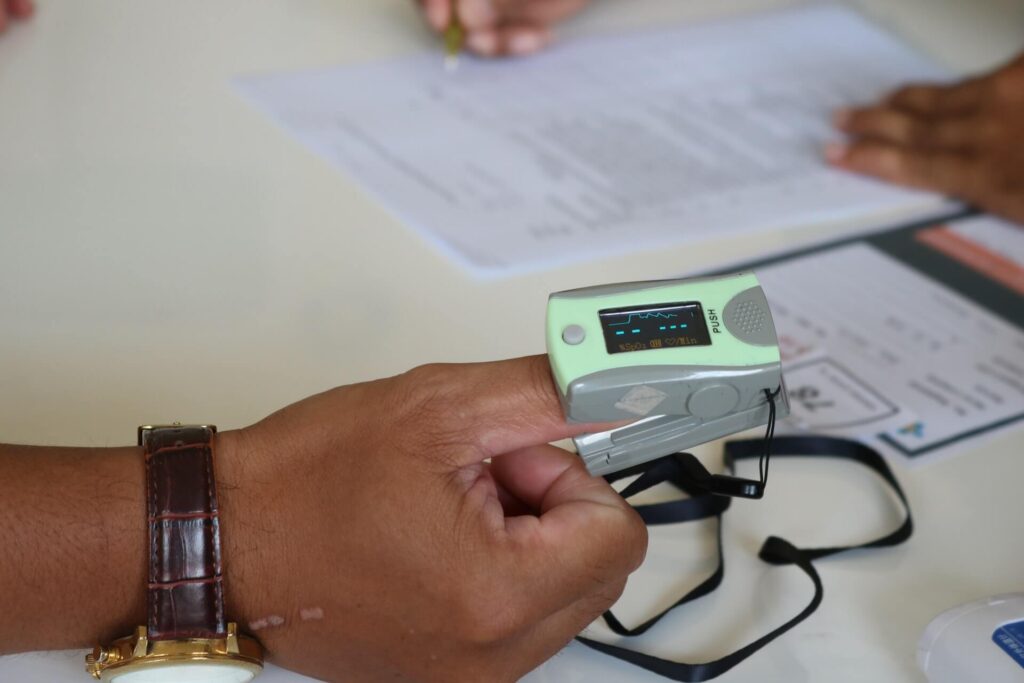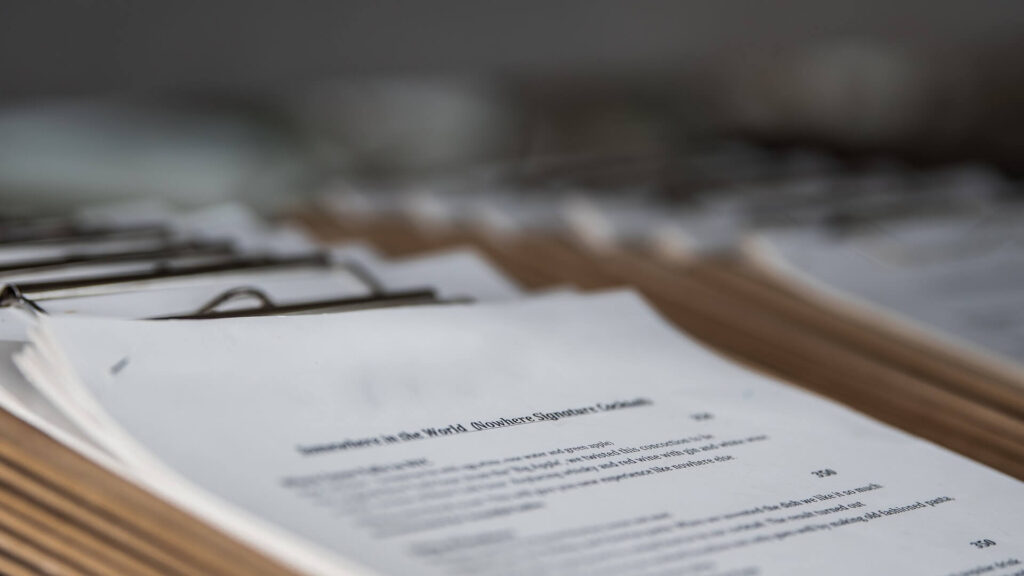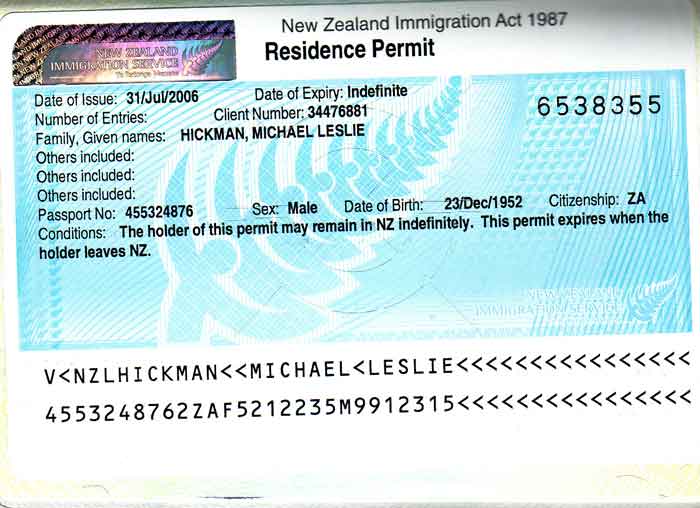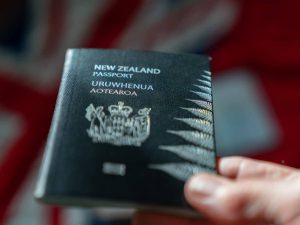Being an immigrant entering the country with a resident visa and then securing a PR in New Zealand gives one the freedom to work, live, go and come as they please. With this status, a travel visa waiver automatically applies, such that permanent residents are not required to apply for the different travel exception programs being rolled out by the New Zealand immigration services.
Related article: Visa interview questions that will make sure you never get rejected again
They also have an added advantage of being able to immigrate to Australia to work indefinitely. As if being able to work and live forever is not advantageous enough while in New Zealand. New Zealand PR status is recognized in a few other countries as well.
This is probably why there is a huge clamor for the resident visa New Zealand, because people want to get unbridled access to one of the cleanest countries on earth. And using this visa class is the fastest path to permanent residency in New Zealand. We are now going to break down how to go about this step by step.
New Zealand Residency
To become a New Zealand permanent resident from any country in the world, you are required to apply for and be granted a resident visa. To get this visa, there are several paths that can be followed such as being granted an essential skill visa or a visa that grants the applicant permission to own a business in New Zealand.
Even a temporary work visa holder has a clear path to a New Zealand residency. However, applicants granted a skilled migrant visa get the most benefit of all, this class of applicants get permanent residency immediately upon receiving a favorable visa decision.

Whatever category of visa one gets, it cannot be stressed how important it is to stick to the terms, conditions and guidelines of the visa granted as being in breach of this guidelines could lead to interruptions, which in themselves are tantamount to a visa being withdrawn. When this happens, it becomes almost impossible for an applicant to apply for a PR in New Zealand.
If NZ residency is what an applicant has in mind, identifying the optimal visa class to apply for is key. It has to be deduced whether the final outcome of a particular category will lead to a permanent residency in New Zealand.
The applicant will have to fulfill the conditions for the visa category granted, whether this be a temporary work visa or a skilled migrant visa before permanent residency can be conferred. With this in mind, there must be a level of certainty that candidates are ready to go the distance before they apply.
Resident Visa New Zealand
An individual can never get a PR in New Zealand without a resident visa. It thus beholds that this visa category has to be properly understood in other to apply for and be granted permanent residency in the country.

The resident visa for New Zealand focuses on people whose primary purpose of being in the country is to work. There are eligibility criteria for this visa class which have been put in place by the New Zealand immigration services since 2021.
Resident Visa Application Fee
Resident visa applicants are expected to pay a visa application fee of $2,160. Which includes an application processing fee of $1,330 and an immigration levy of $830.
Application Fee Exceptions
Citizens of Japan are not required to pay a resident visa application fee as they are exempt from this requirement and can thus move to fill out an application form.
Residence Visa Eligibility Under The Settled, Skill And Scarce Stream
For applicants who have lived in New Zealand for over 3 years (settled) or those who earn salary equal to or over minimum wage rates of NZD $27 per hour (skilled) or professionals that occupy positions in companies that are categorized as jobs on the scarce list (scarce).
To be eligible for a residence visa New Zealand under this stream, applicants are required to have been in the country on 29 September 2021. Intending beneficiaries are mandated to be on an eligible visa on 29 September 2021 or must have submitted an application which was later approved for the right class of visa to put them in line for a resident visa.

Also, potential recipients of the resident visa must either have settled in New Zealand for over 3 years or worked/working as a skilled employee in the country earning above the minimum wage of NZD $27 per hour or is a specialist for a job itemized on the list of scarce experts.
By falling under one of the above criteria, the applicant automatically becomes eligible for the New Zealand resident visa.
Settled, Skill And Scarce Exceptions
However, it’s possible that the beneficiary wasn’t in the country as of the time when the criteria for eligibility for a resident visa was met. An application will be considered if the applicant was in Australia during the period of 29 September 2021.
To submit an application for a New Zealand resident visa, the applicant will have to be present in the country for his/her application to be accepted.

Qualifying Visas That Make Applicants Eligible For A New Zealand Resident Visa
There are visa subclasses that applicants need to have been granted or be in the process of being granted on or before 29 September to be eligible for a resident visa. They are;
- Some critical purpose visitor visa (CPVV)
- Long term skill shortage list work visa
- South island contribution work visa
- Religious worker work visa
- Victims of family violence work visa
- Accredited employer talent work visa
- Trafficking victim work visa
- Immigration act section 61 granted work visa (applicants have to hold any of the above visas for 6 months to be eligible to be granted this visa)
- Essential skills work visa
- Migrant exploitation protection work visa
- Silver fern practical work experience work visa
- Art culture sports talent visa

There are notable exceptions, people on a short stay visa are not eligible to apply for a resident visa. Such as holders of visitor, student, working holiday or seasonal visas or beneficiaries of any recognized seasonal employer scheme or critical workers working on a short stay basis.
New Open Work Visas
This visa subclass affords applicants the benefit of working for any employer while in New Zealand. An offer of employment is not required when an application is tendered. However, this visa category is not available to all applicants. It is usually custom made for beneficiaries of various working holiday visa schemes.
If a recipient is a holder of any of the above 11 qualifying visas when a new open work visa is granted by special direction on or after 9 May 2022, he/she automatically becomes eligible for a resident visa.

Critical Purpose Visa
Some individuals are awarded a critical purpose visa to come into New Zealand for the purpose of rendering healthcare services during times of emergency or to offer assistance in sectors where urgent aid is required.
When this visa is granted on a long stay basis to an applicant, it cancels out the resident visa criteria for eligibility that requires that recipients need to be settled, skilled or working in a job where experts are scarce.
Eligibility Criteria For Dependent Children Aged 25 Years And Above
When families immigrate to New Zealand under a skilled residence application or a skilled migrant category expression of interest on or before the 29 September 2021, they might have children who were dependent minors at the time, but over time come of age and are now 25 years or older.
These adults who are children of migrant parents are eligible for the 2021 New Zealand resident visa. Particularly if their parents are also approved 2021 resident visa recipients. However, dependent applicants will have to meet a character as well as a health check requirement.

Eligibility Criteria For Partners Of Resident Visa Applicant
For any legal partnership to be recognized by the New Zealand immigration services they must conform to laws on legal partnership in the country. Unlike primary applicants, their partners are not required to be present in New Zealand to be included in an application.
2 people are recognized under the laws of New Zealand as being partners if they are in a stable, genuine relationship either in a legal marriage, a civil union or in a relationship that is amicable to both partners, but not recognized by law.
To be able to immigrant to New Zealand with a partner, who is either a permanent resident or has a resident visa, it must be proven that a union of partners has existed for the last 12 months and infact both partners have lived together before a partner visa application is submitted.

For partners who had been separated from each other due to the Covid-19 pandemic, the immigration services for New Zealand analyzes how primary applicants stayed in contact with their partners as a pragmatic approach to ascertain the validity of a relationship.
For people who recently entered into relationships with partners who themselves are applicants for a resident visa are not eligible to apply for a partner resident visa, which is a statute that has been in place since 2021.
Wives, legal companions or partners of resident visa recipients or permanent resident beneficiaries who are granted resident visa can enter or leave New Zealand as they please, because their rights are covered under a partnership-based visa.
General Health And Character Eligibility Criteria For New Zealand Resident Visa
To be granted a resident visa which puts an applicant in line to receive PR in New Zealand, there are key health as well as character requirements that must be met to be eligible.
Health Eligibility Requirements
There are certain medical conditions that are not eligible for medical waiver, conditions such as tuberculosis, hemophilia, kidney complications that might require dialysis or full-time care. Applicants with these complications would not be granted resident visas into New Zealand

Potential beneficiaries of the NZ resident visa who had submitted a health certificate within a 36-month period and were deemed to have been cleared do not need to tender another medical certificate as the immigration services for New Zealand still has the previous certificate in their system.
For applicants who were denied a visa on health grounds, but have since recovered, can submit a limited health certificate that shows that they are fully recovered. This of course with a new resident visa application.
For those putting in resident visa application for phase 1 or early-stage phase 2 are mandated to submit a health certificate by 31 July 2022, which is the deadline for this application.
For phase 2 applicants, who are unable to meet up with the early-stage application, will have to submit theirs using the New Zealand immigration service enhanced online system. This invariably means that they will be able to tender an online resident visa application without a medical certificate.

If one is required, it will be communicated to the applicant. If a medical certificate has already been obtained and submitted in a different application it will not be requested again as the New Zealand immigration already has it in file.
Sometimes more information on an applicant’s health is requested, this depends on the prior visa subclass in which an applicant previously held before applying for a resident visa as well as the content of a medical certificate.
Note: If a temporary visa is going to be applied for before a resident visa application is submitted, it would be best for the applicant to get a general examination done and secure a certificate for this as opposed to a limit medical certificate which is usually what is requested for a resident visa application.

Character Eligibility Requirement
All applicants for the New Zealand resident visa who are aged 17 or older and living within the country are subject to police checks by the immigration services this does not take into account the amount of time they have been living in New Zealand for.
In some cases, as rare as they might be, police certification from overseas is requested to process some applications.
The immigration services for New Zealand normally carries out national security checks (NSC) per applicant depending on each application’s unique requirement. This is usually done to meet standard immigration processing requirement.
How The Resident Visa Affects Visa Holders Outside New Zealand
As stated earlier, to apply for the New Zealand resident visa, applicants need to be located within the country, unless they are partners, dependents and children of resident visa recipients whether 25 or older.
This visa category (resident visa) was designed to offer immigration stability to workers and businesses who immigrated to New Zealand to help increase productivity across different sectors of the economy post pandemic.

How The Resident Visa Affects Student Visa Holders
International students particularly those studying for their masters and doctorate degrees cannot apply for resident visas because they are not eligible. Individuals who plan on staying back in New Zealand after completing their studies will have to apply for a temporary visa or other visa categories available to them after which they can then apply for a resident visa.
New Zealand PR Visa
A New Zealand permanent resident (PR) visa allows recipients to stay, work and study in the country indefinitely. Holders of this visa can come and go as they please. It applies to primary applicants, their partners and dependents who must be under the age of 24.
New Zealand PR visa can only be applied for while applicants are within the country. An application cannot be submitted from overseas. Also, applicants are required to have been living in New Zealand with at least one form of resident visa for a period of 2 years to be eligible for PR application.

These family members must be included in the primary applicant’s original resident visa application.
Before PR visa holders can successfully use this status to enter and leave New Zealand whenever they want, the permanent resident visa has to be stamped in a passport that is still valid. In event that a passport expires, a transfer of visa can be applied for to accommodate a new passport.
There are Strict criteria for eligibility that PR visa applicants are required to meet to be granted visa. All criteria have to be met or PR in NZ will be denied.
What Happens If A PR In New Zealand Visa Application Is Denied?
An applicant might be denied a permanent resident visa in New Zealand for a number of reasons. All of which will have to do with failure to meet stipulated criteria for eligibility which are strict requirements that immigration New Zealand uses to grant or deny PR visa applications.

When a PR visa application is rejected, the immigration services could choose to offer an applicant a different variant of resident visa that contain conditions different from the resident visa an applicant previously held.
The travel conditions highlighted in the new resident visa would offer beneficiaries more time to move in and out of the country as a resident.
PR In New Zealand Requirement
Immigrants to New Zealand who have been granted any subcategory resident visa and have lived in the country for 2 years or more might be eligible for a permanent resident visa. Which gives unlimited access to beneficiaries to leave and enter the country whenever they want.

There are also strict supporting document requirements that must be met while looking to get permanent residency in New Zealand. Applicants will be required to submit;
- Identity documents
- Character certificate
- Provide the status of resident visa
- Show evidence that current resident visa was never violated
- Show commitment of productivity while in the country
- Partners and dependents must apply for permanent residency at the same time as the primary applicant
Identity Documents
To apply for PR in New Zealand, applicants are required to provide evidence of their identity, which consist of 2 photos that are acceptable. As well as either one of a passport or a certificate of identity. Photographs have to clearly show applicants from their head to their shoulders.

Pictures have to be no older than 6 months old. Photographs that do not with the required standards will be turned down and additional pictures will be requested. While this request is being made, PR visa application processing will be halted.
Photographs taken by skilled professionals are more likely to be accepted by immigration NZ. Particularly if they meet the technical requirements stipulated for their capture.
In submitting a permanent resident visa application, passport photos must be;
- In a JPG format (JPEG)
- In a size range of 500KB to 3MB
- Of resolution that varies between 900 x 1200 pixels and 2250 x 3000 pixels
It is acceptable to provide an original passport or a copy that has been certified to be worthy of use. When a certified copy of a passport bio-data page is submitted, the original passport could be requested to enable completion of the application process.

Character Certificate
Applicants might be required to provide a character certificate to show that they are of good standing with the law. To get this done, applicants are required to submit police certificates as evidence of good character.
This document is not mandatory, however if it is a requirement, immigration New Zealand always informs potential PR recipients on the need for such certificate to be submitted. Candidates who have criminal records or are perceived to pose a risk to citizens of New Zealand will be declined PR.
Depending on how minor an offense is, a beneficiary of the permanent resident visa could be issued a character waiver which overrides the requirement for a character certificate. This of course is at the sole discretion of the INZ (immigration for New Zealand).

A police certificate being submitted for permanent resident visa should not be older than 6 months from the date it was issued. All documents must be in English or translated to English. If a police check is a year old from date of issue, then more information will be requested to clarify this minor detail.
Status of Resident Visa
Before a PR in NZ can be issued, applicants must be in possession of a valid resident visa or one that must have been active in the last 3 months.
Resident visa subclass holders are also required to have stayed in New Zealand on a prolonged basis which equates to a period of 24 months at the time when a permanent resident visa is being applied for.
If an applicant is unable to provide a resident visa, then a New Zealand resident permit would suffice.

In an event that an applicant’s resident visa has expired for a period longer than 3 months, his/her application for a permanent resident visa will be denied if submitted. However, it is permissible for a recipient to apply for other resident visa sub-classes.
Sticking To The Terms And Conditions Of A Previous Resident visa category
Those seeking a permanent resident visa in New Zealand are required to show that all conditions, rules and guidelines stipulated in their current resident visa was met and were never violated at any point during an applicant’s stay in the country till a PR visa was submitted.
In this regard, documented evidence is required. These conditions vary across different resident visa subclasses, however there are generic conditions that are common in all cases;
- Entering and existing the country (New Zealand) only occurred during the periods when the resident visa was active and never when it had expired.
- The minimum number of days that was highlighted in each resident visa category holder’s passport to stay in New Zealand before leaving for other destination countries was met

- Resident visa beneficiaries have to have a portion of their income or earning invested within the country. Which is seen as their contribution towards economic growth
- Most resident visa subclasses stipulate that recipients work in a specific job for specific companies as opposed to working different jobs for different companies
It is advised that resident visa holders across all subcategories check the labelled conditions associated with their visas and ensure that they are adhered to in other to avoid being denied permanent residency due to their violation.
Evidence Of Commitment To Living In NZ Permanently
In other to be granted permanent residency in New Zealand, all applicants are required to show their commitment to the country. Commitment can be shown in different ways. It could be as simple as spending 184 days in New Zealand in each of the last 2 years. This alone ensures that resident visa recipients meet this requirement.

Those who have spent this period of time in New Zealand are not required to show proof of commitment to the country as this can be retrieved from their travel record thus validating their permanent resident application.
There are other ways in which commitment to New Zealand are qualified such as;
Having an NZ tax residence status
This requires an applicant to have stayed in the country for 41 days in each of the single yearly period that makes up the preceding 2 years before a permanent resident application can be submitted
It also has to be proven that applicants have resident tax records for the previous 2 years before application for PR.

An evidence can be submitted in the form of a New Zealand inland revenue statement or an inland revenue endorsed form confirming tax resident status. It must be noted that tax resident status in other countries does not apply here. No matter the agreement or understanding that country has with New Zealand.
Investment In New Zealand
PR in New Zealand applicants must proof that they have at least NZ$1,000,000 which was bulk invested or invested in instalments for a period of 2 years before a PR visa application was submitted. The investments in question must be of the kind acceptable to immigration NZ.
Proof of ownership as well as value of investments must be submitted in the form of;
- Business ownership certificates and reports on valuation
- Bank documents and records
- Documents showing ownership of shares such as share certificates
- Reports and deeds of properties owned in New Zealand

There are certain criteria that investments must meet to be considered as acceptable to the New Zealand immigration services;
- It must offer some form of commercial return
- All funds related to the opportunity must be invested in New Zealand
- The currency of transaction must be in New Zealand dollars
- All investment made in New Zealand must be in legal enterprises or legally managed funds
- All investment made by PR visa applicant must be made to contribute to the country’s economic growth
- Investment should not be made primarily for the use of the applicant, such as purchase of a boat, car, house etc, instead must be done with wealth creation in mind
Primary investment vehicles must be done in asset classes such as bonds, equities, properties and the like.
Commitment Of Owning A Business In New Zealand
One of the ways PR applicants in New Zealand can show that they are committed to life in New Zealand is by buying or starting a business in the country. The business in question must be properly ran and has to be of benefit to citizens of New Zealand.

It is important to note that if a stake in an existing business was purchased, to meet the requirement of commitment, the applicant must have acquired 25% ownership of the business to be seen as being committed to the country.
To show ownership of a business in New Zealand, potential PR visa recipients will need to;
- Submit business account records which have already been certified by a chartered accountant in New Zealand
- A piece of correspondence from a chartered accountant within the country to immigration New Zealand stating that the applicant’s business account is currently being audited
Setting A Base Of Operations In New Zealand
As mentioned earlier, a commitment to New Zealand can be shown by living in the country as a resident for a period of 41 days which is the bare minimum required timeframe in a year before a PR visa application can be submitted.
For partners and other family members, they are expected to have been living in New Zealand for a timeframe of 184 days within a 2-year period before an application for permanent residence can be submitted.

Owning a House To Prove Base
Immigration New Zealand expects applicants in the country to have bought a house in the country and have lived in it for a 12-month period before applying.
Being Employed As Commitment To Stay In The Country
PR in NZ potential beneficiaries are also expected to be employed on a full-time basis for a timeframe of 9 months within a 2-year period before submission of a visa for permanent residency.
There are documents required to proof that an applicant’s base of operation is New Zealand. They include;
- Property ownership deed
- Mortgage agreement
- Housing insurance documents
- Utility bills

Also documents that show full employment can be submitted as well. Such as;
- A contract showing full employment
- Monthly pay slip (usually for a 6-month period)
- Letter of confirmation of employment from an employer
Note: Affiliate marketers or commission-based workers cannot use a document showing employment to establish New Zealand as a base of operation. Thus, this is not an accepted means of showing commitment to the country for this category of professionals.
Timing Of Application For PR In New Zealand By Family Of Primary Applicants
Partners and family members are not allowed to apply for a permanent resident visa before a primary applicant, even though they might be living in New Zealand under a category of resident visa. An application for PR must be done during or after a primary applicant has applied.

This is a key requirement for family members of a primary beneficiary, unless a non-principal exception exist which grants blood relatives of a primary applicant the right to submit PR visa applications before their principal.
How The Christchurch Terrorist Attack Affects PR In New Zealand
Victims of the Christchurch terrorism attack which took place on 15 March 2019 as well as their family members based in NZ can apply for permanent residence using a different process specifically designed for this class of applicants.
How To Apply For PR In New Zealand
To be granted a Permanent Residency in NZ, an application form will have to be filled by the primary applicant in New Zealand. This can be done online or offline. An online application can be done by filling the permanent resident visa form which can be found in the immigration New Zealand website.
An offline application can be done by printing out a PR visa form, hand filling it and submitting it to the nearest immigration office closest to the applicant. Other PR visa applications for partners and dependents have to be put in together with the primary applicant’s application or at a later date after the primary beneficiary must have tendered his/her application.

There are supporting documents that need to be submitted alongside PR visa application, this can be found in the New Zealand PR requirement section.
PR In New Zealand Processing Time
For a primary applicant’s application, a decision should be expected 78 to 120 days after a completely filled visa application and supporting documents have been submitted. In the case of partner and dependent family members, a decision should be expected 6 to 9 months after submission of a PR visa application.
The immigration New Zealand states on their website that they are experiencing delays brought about by the covid-19 pandemic. Particularly in processing applications related to PR visas and transfer of visas to new passports.

Conclusion
PR in New Zealand is granted to people with different categories of resident visa who have been living in the country for at least 2 years and above. However, this is not the only requirement that makes an applicant eligible for permanent residency in New Zealand.
Before applying for permanent residency in New Zealand, applicants are required to be holders of visa categories that confers on them residency status. Visa categories such as the temporary work visa, skilled migrant visa, essential workers work visa etc does this. Student or other short stay visas do not offer a pathway to Permanent residency.
For PR to be granted in NZ there are series of documents that need to be submitted as well as criteria for eligibility met. If an applicant gets denied permanent residency, he/she can be granted a new variant of the resident visa that would offer the applicant more opportunity to come and go as they choose.
PR beneficiaries are required to put in visa applications together with their partners and dependents who must be 24 years or younger. Partners and dependents can also put in applications after a primary applicant has, but never before.
To apply for a permanent resident visa, applicants are required to fill an application online in the immigration New Zealand website or offline to be delivered to the INZ office. A decision is usually made on a primary applicant’s application in 78 to 120 days, partner and dependent applications could take a timeframe of 6 to 13 months for a decision to be made.
What do you think about the PR in New Zealand? Is it easy or daunting?











